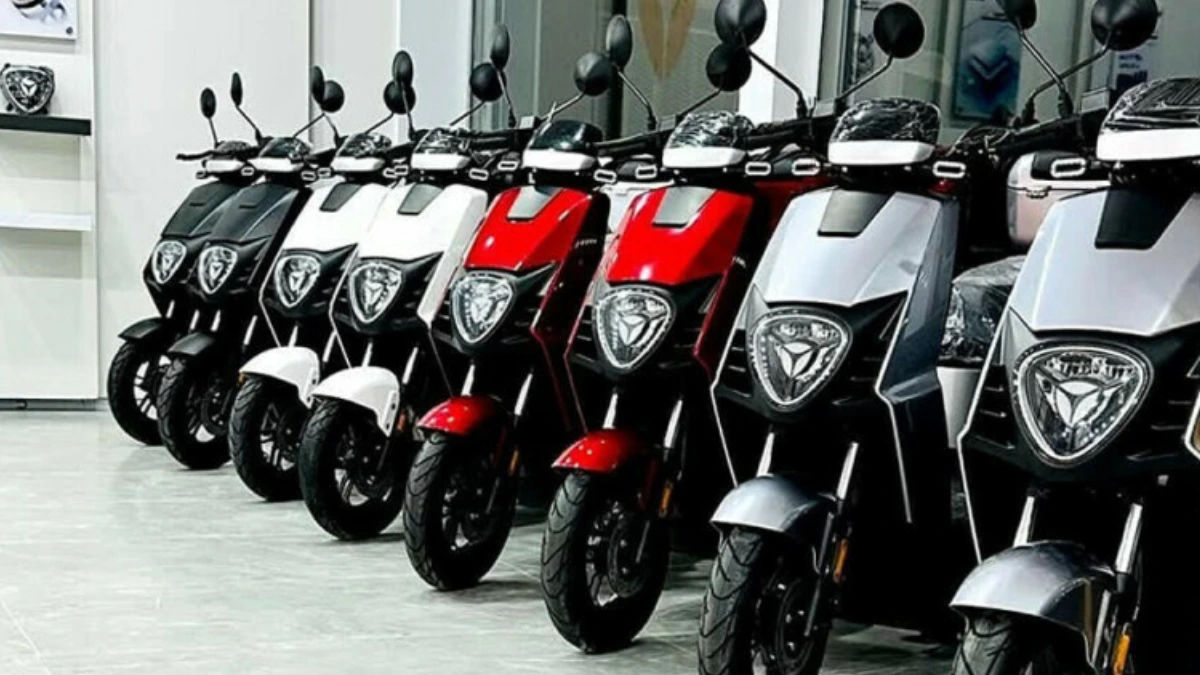Pakistan’s electric bike market in 2025 has witnessed rapid growth, transforming from a niche trend into a mainstream commuting solution. With models from brands like Jolta, Yadea, and others priced between PKR 150,000–250,000, e-bikes have become a practical alternative to traditional 70–125cc petrol motorcycles. Government support through the EV Policy 2025–30, including subsidies and financing schemes, further accelerated adoption and positioned electric mobility as a viable option for urban riders.
Why Electric Bikes Became Popular
Several factors fueled this shift:
- Affordability: Locally assembled models and subsidy-backed prices made e-bikes accessible to middle-income households.
- Fuel Savings: Rising petrol prices made electricity-powered bikes significantly cheaper to operate in the long run.
- Eco-Friendly Choice: In smog-hit cities, zero-emission bikes appealed to environmentally conscious riders seeking cleaner alternatives.
These advantages made electric bikes especially popular among daily commuters, delivery riders, and students.
Also Read: United US 70cc 2025 Launch in Pakistan – Specs, Price & Variants
Government Policy Shift
Background: EV Duty Exemptions
To promote electric mobility, the Auto Industry Development Policy (AIDP) 2021–26 introduced several tax incentives. Among the most notable was the reduction of customs duty on essential electric bike components—such as batteries, motors, and chargers—to just 1%. This policy played a critical role in lowering production costs, making e-bikes more affordable, and encouraging local manufacturers to expand their offerings. The exemptions also helped the government position electric vehicles as a sustainable and cost-effective alternative to conventional two-wheelers.
Proposed Change in 2025
In 2025, however, the government is considering a significant shift. The proposed policy would raise customs duties on imported e-bike parts from 1% to 30–35%.
Rationale Behind the Policy Reversal
- Revenue Concerns: The government aims to offset fiscal pressure created by prolonged tax concessions.
- Encouraging Localization: By reducing dependence on imports, the policy seeks to incentivize local production of EV components.
- Trade Balance: Higher duties are viewed as a tool to control imports and help stabilize the trade deficit.
While these measures are designed to strengthen the economy and promote domestic manufacturing, industry experts warn that the immediate consequence could be higher retail prices, potentially reducing affordability and slowing down consumer adoption of e-bikes.
Impact on Electric Bike Prices
Components Most Affected
The proposed duty hike is expected to affect the cost of several key components that make up the core of an electric bike:
- Batteries (Lithium-Ion): Representing nearly 30–40% of an e-bike’s total cost, lithium-ion batteries are the most expensive component. Any increase in import duties will directly raise the retail price of electric bikes.
- Motors & Controllers: These imported parts are central to performance and efficiency. Higher tariffs on them could significantly inflate production costs.
- Chargers & Converters: While relatively lower in cost compared to batteries, these are imported in large volumes. Increased duties would add further pressure on assembly expenses.
Price Hike Estimates
If customs duties rise from 1% to 30–35%, the impact on consumer pricing could be substantial:
- Estimated Price Increase: Retail prices of e-bikes may rise by PKR 40,000 to PKR 70,000, depending on the model and specifications.
- Locally Assembled Models: Since many local manufacturers still rely on imported batteries and motors, their production costs are expected to rise sharply, reducing the affordability advantage that initially boosted sales.
- Fully Imported Bikes: These models would be the hardest hit, as higher duties on every component could make them significantly more expensive—potentially moving them out of reach for middle-income buyers.
Overall, this expected price surge threatens to undermine the cost-saving appeal of electric bikes, especially for students, delivery riders, and daily commuters, who form the largest segment of buyers.
Popular Electric Bike Models & Prices (2025)
Pakistan’s electric bike market in 2025 offers a wide variety of models catering to different budgets and commuting needs. Below is a detailed comparison of some of the most popular options.
| Brand / Model | Price (PKR) | Category / Highlights | Official / Source Link |
|---|---|---|---|
| Pakzon PE-70D | 149,900 | Affordable entry-level bike, ideal for students and city commutes | Pakzon Official Site / PakWheels |
| Revoo A11 | Starting from 155,000 | Stylish commuter scooter with ~65–80 km range | Revoo Official Site / PakWheels |
| Revoo Max 200 / Max 350 | 365,000 – 615,000 | Premium models with higher performance and longer range | PakWheels |
| Jolta Electric Bikes | Entry-level range | Pakistan’s first local e-bike brand, budget-friendly daily commuters | Jolta Official Site |
| Jaguar W4 | Mid-range segment | Balanced between price and features | No official site – recommend linking to your own review page |
| Sunra Electric Bikes | Varies by model | Reliable urban e-bikes, popular with city commuters | Sunra Official (China) / PakWheels |
Market Reaction & Industry Concerns
Assemblers & Manufacturers
The proposed increase in customs duties has raised serious concerns among local assemblers and manufacturers.
- Increased Production Costs: Since batteries, motors, and chargers make up a significant portion of total expenses, higher tariffs will directly raise production costs for e-bike manufacturers.
- Dependence on Imported Components: Despite growth in the sector, Pakistan’s EV industry still relies heavily on imported parts. This dependence leaves local assemblers particularly vulnerable to sudden shifts in government policy.
Manufacturers caution that these challenges could result in higher retail prices, reducing affordability and slowing the momentum of e-bike adoption.
Engineering Development Board (EDB) Stance
The Engineering Development Board (EDB) has formally appealed to the government to retain the existing 1% duty on EV components.
- Appeal to Retain Low Duty: The EDB emphasizes that maintaining low duties is essential for keeping e-bikes affordable and ensuring continued growth of the sector.
- Concerns About Slowing Adoption: Officials warn that steep price hikes could discourage consumers, undermining government efforts to promote electric mobility under the EV Policy.
In essence, the EDB supports policy consistency that balances the government’s goals of encouraging local manufacturing while ensuring that electric bikes remain accessible to the average commuter.
Why are electric bike prices increasing in Pakistan?
Electric bike prices are expected to rise due to a proposed government policy that increases customs duty on imported EV parts such as batteries, motors, and chargers. This move will raise production costs for manufacturers, ultimately affecting consumer prices.
What is the new customs duty on EV parts?
Under the previous policy, EV parts were subject to just 1% customs duty. The new proposal suggests increasing this to 30–35%, a major shift that could significantly impact the affordability of electric bikes.
Which electric bike models are most affordable in 2025?
Some of the most budget-friendly options include the Pakzon PE-70D (PKR 149,900) and Revoo A11 (starting from PKR 155,000). These models are popular among students, delivery riders, and daily commuters.
Will locally assembled electric bikes remain cheaper?
Yes, locally assembled e-bikes may remain comparatively more affordable than fully imported models. However, since many essential components are still imported, even local assemblers will be forced to raise prices if duties increase.
Is it the right time to buy an electric bike in Pakistan?
For buyers considering an e-bike, 2025 may be the best time to purchase before price hikes take effect. Once the new duties are enforced, prices across the market are likely to rise substantially.



Join The Discussion